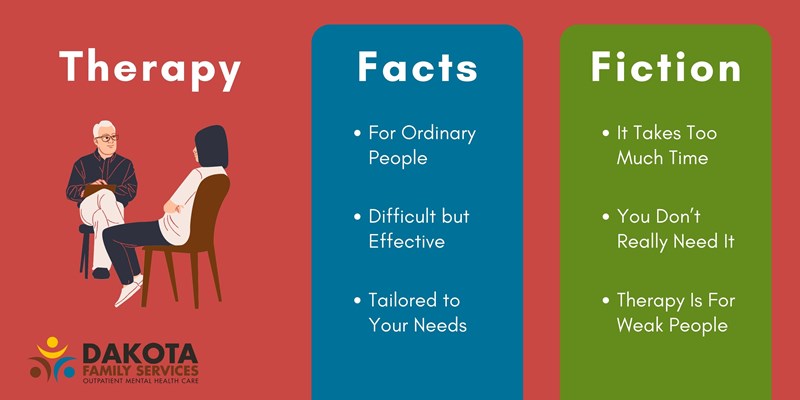Opening the Tricks of Mental Health: A Summary of Counseling and Therapy Choices
Mental health is a complicated and essential aspect of total health. Various counseling and therapy choices exist to attend to numerous psychological difficulties. Each method uses special benefits and methods tailored to private demands. Comprehending these options is vital for any person looking for to enhance their psychological health and wellness. Mental Health Resources. What aspects should one consider when discovering these methods? The response may expose a path to a much healthier emotion
Recognizing Mental Health and Its Significance
Mental health encompasses the emotional, mental, and social wellness of individuals, considerably affecting just how they think, feel, and act. Its value can not be overstated, as it impacts every aspect of life, consisting of partnerships, job efficiency, and total top quality of life. People with good psychological health and wellness have a tendency to manage stress and anxiety a lot more successfully, keep healthier connections, and make informed decisions. On the other hand, poor mental health can lead to psychological distress, impaired functioning, and different mental illness, which might require professional intervention. Recognizing psychological health is crucial for recognizing the indicators of distress and the need for support. Recognition additionally promotes compassion and reduces stigma, motivating individuals to seek assistance when required. By focusing on psychological health and wellness, neighborhoods can cultivate environments that sustain emotional health, eventually resulting in much healthier, much more resistant people. This foundation functions as a crucial step towards effective mental wellness therapy and treatment choices.
Sorts Of Therapy Strategies
Therapy strategies differ extensively, each tailored to meet the unique demands of individuals seeking assistance. Among one of the most common types are cognitive-behavioral therapy (CBT), which focuses on recognizing and transforming adverse idea patterns, and person-centered treatment, which emphasizes empathy and acceptance. Psychodynamic therapy explores past experiences and unconscious procedures to recognize current actions, while solution-focused quick therapy aims to determine options instead than investigate problems.Additionally, household treatment addresses relational characteristics and interaction within families, promoting much healthier interactions. Team counseling supplies a common area for individuals to share experiences and support each other. Other approaches consist of existential treatment, which urges individuals to find definition and purpose, and art or songs treatment, which utilizes creative expression as a restorative tool. Each strategy supplies unique techniques and ideologies, allowing clients to locate the most suitable method for their individual growth and healing trips.
Exploring Various Treatment Techniques
In the domain name of psychological wellness counseling, various treatment techniques provide distinct approaches to therapy. Cognitive Behavioral Treatment emphasizes the link between actions and ideas, while Psychodynamic Therapy discovers unconscious impacts on emotional well-being. In Addition, Mindfulness-Based Methods advertise present-moment awareness as a method to improve emotional guideline and total mental wellness.
Cognitive Behavior Treatment
Cognitive Behavior Modification (CBT) sticks out as one of the most commonly exercised and looked into techniques in psychological wellness treatment. This method concentrates on the interconnection between thoughts, sensations, and actions, highlighting that altering unfavorable idea patterns can lead to enhanced psychological wellness and behavior adjustments. CBT is structured, generally involving a limited variety of sessions, and intends to outfit people with useful abilities to handle their signs and symptoms. It is reliable for a selection of conditions, including stress and anxiety conditions, clinical depression, and trauma. By using methods such as cognitive restructuring and exposure treatment, CBT fosters resilience and empowers clients to confront challenges head-on, making it a useful choice in the landscape of psychological health and wellness treatments.
Psychodynamic Therapy Methods
Psychodynamic therapy approaches provide a deep exploration of the subconscious mind and its influence on actions and psychological health. Rooted in Freudian theory, these methods stress the relevance of very early youth experiences and subconscious disputes. With methods such as totally free association, dream evaluation, and transfer, individuals acquire insight into their thoughts and sensations, fostering self-awareness and understanding. This therapeutic modality urges customers to uncover repressed emotions and unresolved concerns, which can be essential in addressing current psychological obstacles. By taking a look at the interplay in between previous experiences and present actions, psychodynamic treatment aims to promote emotional healing and individual growth. Ultimately, it gives a framework for individuals to check out complex internal dynamics that affect their mental health.

Mindfulness-Based Methods
While traditional therapies frequently focus on previous experiences, mindfulness-based methods focus on present-moment understanding as a path to emotional wellness. These techniques, consisting of mindfulness-based cognitive treatment (MBCT) and mindfulness-based anxiety reduction (MBSR), motivate individuals to engage fully with their thoughts and sensations without judgment. Professionals discover to observe their mindsets, fostering a greater understanding of psychological triggers and reactions. This method not only eases signs and symptoms of anxiousness and anxiety however likewise enhances overall mental strength. By incorporating mindfulness workouts, such as meditation and deep breathing, clients cultivate a feeling of tranquility and quality. Eventually, mindfulness-based techniques equip people to navigate life's difficulties with boosted awareness and approval, advertising a much healthier connection with their feelings and ideas.
The Duty of a Therapist or Counselor
A knowledgeable specialist or counselor plays a vital role in sustaining individuals with their mental wellness journeys. They provide a secure, non-judgmental area where clients can share their thoughts and sensations honestly. Couples Therapy. By utilizing different restorative strategies customized to each individual's needs, specialists aid customers explore underlying concerns that may add to their mental wellness challenges.Therapists use guidance and devices to deal with stress, anxiousness, anxiety, and various other emotional problems. Their training outfits them to acknowledge patterns in actions and thought processes, helping with understandings that result in individual growth. They likewise cultivate a strong restorative partnership, which is important for effective outcomes.Moreover, specialists continue to be dedicated to discretion and ethical requirements, making certain a trusting setting. Ultimately, the role of a therapist or therapist is to encourage individuals, urging them to develop resilience and healthier coping approaches while guiding through life's complexities
Exactly how to Pick the Right Therapy or Treatment Option
Choosing the best counseling or therapy choice starts with assessing private requirements. It is necessary to comprehend individual obstacles and objectives prior to discovering various therapy styles. This foundational step can substantially affect the effectiveness of the chosen approach.
Assess Your Needs

How can people properly examine their mental health needs when assessing counseling or treatment options? Initially, they ought to assess their emotion and Marriage Counselling recognize certain issues, such as clinical depression, connection, or stress and anxiety difficulties. Journaling can be a helpful device for tracking ideas and feelings with time. Additionally, individuals may profit from looking for feedback from relied on pals or household members relating to regarded adjustments in actions or state of mind. It is likewise helpful to examine individual objectives for therapy, such as enhancing coping abilities or obtaining understanding into personal patterns. Ultimately, researching different counseling techniques and their suitability for particular requirements can assist in making an enlightened selection. Inevitably, self-awareness plays a crucial duty in picking the right path for mental health assistance.
Explore Treatment Styles
While traversing the varied landscape of treatment alternatives, individuals should take into consideration numerous styles of counseling to discover the best suitable for their unique requirements. Cognitive Behavior Modification (CBT) focuses on changing unfavorable thought patterns, while Psychodynamic Therapy discovers subconscious processes and previous experiences. Humanistic strategies highlight personal development and self-actualization, fostering an encouraging setting. Additionally, mindfulness-based therapies cultivate present-moment understanding, aiding psychological guideline. For those seeking framework, Solution-Focused Brief Therapy targets specific objectives and services. Team therapy gives a common setup for shared experiences and assistance. Eventually, people ought to review their preferences, convenience degrees, and particular obstacles, ensuring they pick a restorative design that resonates with their individual trip toward psychological well-being.
Getting Over Barriers to Seeking Aid

The Advantages of Counseling and Therapy for Psychological Health
Seeking aid for psychological health difficulties can bring about significant improvements in general health. Counseling and therapy supply people with a risk-free space to explore their thoughts and sensations, cultivating self-awareness and personal growth. These expert solutions outfit clients with dealing techniques and analytical abilities customized to their one-of-a-kind situations.Moreover, therapy can minimize signs and symptoms of anxiety, depression, and other mental health conditions, boosting psychological strength. Normal sessions advertise liability and encourage individuals to set and achieve personal objectives. Through various therapeutic modalities, such as cognitive-behavioral therapy or mindfulness practices, clients learn to reframe negative ideas and create much healthier behaviors.Additionally, the healing partnership itself can be a resource of assistance, assisting to deal with seclusion and solitude. In general, participating in counseling and therapy is a proactive action towards accomplishing mental wellness, making it possible for people to lead more fulfilling lives.
Frequently Asked Questions
How Lengthy Does Therapy or Therapy Typically Last?
The period of counseling or treatment differs considerably, frequently lasting from a couple of sessions to a number of months or years. Elements influencing this consist of the individual's specific requirements, the kind of treatment, and restorative goals.
What Should I Expect Throughout My Initial Session?
During the initial session, people can expect an intro, discussion of concerns, and the specialist's method. They may finish analyses and develop goals, promoting a safe setting for open communication and building relationship.

Are There Any Type Of Dangers Related To Treatment?
Treatment can entail threats, such as emotional discomfort, vulnerability, or confronting uncomfortable memories. While these difficulties might occur, they can also result in individual development and healing, making the restorative process complex yet potentially rewarding.
How Can I Inform if My Specialist Is an Excellent Fit?
Determining if a specialist is an excellent fit entails assessing convenience, communication style, and therapeutic approach. Favorable relationship and progress in the direction of goals are indications of a suitable match, necessary for effective mental health and wellness support.
Will My Insurance Coverage Cover Counseling or Therapy Procedure?
Establishing insurance policy coverage for therapy or therapy sessions typically requires contacting the insurance policy copyright straight. Plans vary significantly, so people need to confirm benefits, co-pays, and any required pre-approvals prior to pursuing treatment services. Amongst the most typical types are cognitive-behavioral treatment (CBT), which focuses on identifying and transforming adverse idea patterns, and person-centered treatment, which highlights empathy and approval. Psychodynamic therapy discovers unconscious procedures and past experiences to understand existing habits, while solution-focused short treatment aims to determine solutions instead than investigate problems.Additionally, family therapy addresses relational characteristics and communication within family members, fostering healthier interactions. Various other methods consist of existential treatment, which encourages people to find significance and objective, and art or music treatment, which makes use of creative expression as a healing tool. Cognitive Behavioral Therapy stresses the connection between habits and ideas, while Psychodynamic Treatment checks out subconscious impacts on psychological well-being. Cognitive Behavioral Treatment (CBT) focuses on altering adverse idea patterns, while Psychodynamic Therapy explores past experiences and unconscious procedures.